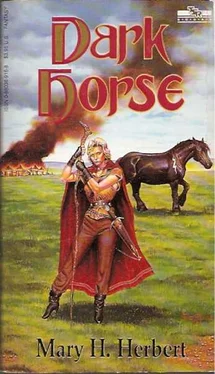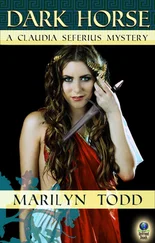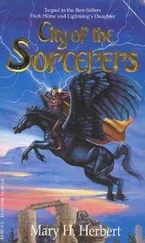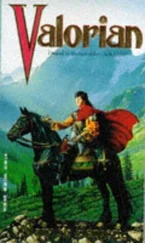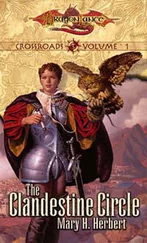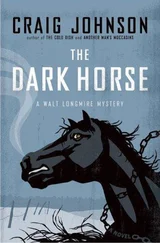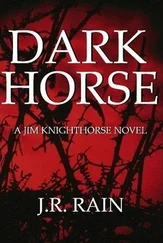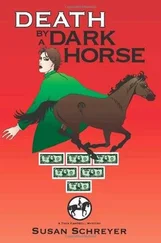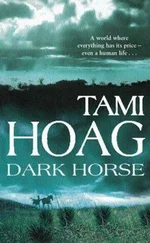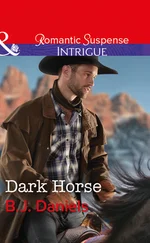Mary Herbert - Dark Horse
Здесь есть возможность читать онлайн «Mary Herbert - Dark Horse» весь текст электронной книги совершенно бесплатно (целиком полную версию без сокращений). В некоторых случаях можно слушать аудио, скачать через торрент в формате fb2 и присутствует краткое содержание. Жанр: Фэнтези, на английском языке. Описание произведения, (предисловие) а так же отзывы посетителей доступны на портале библиотеки ЛибКат.
- Название:Dark Horse
- Автор:
- Жанр:
- Год:неизвестен
- ISBN:нет данных
- Рейтинг книги:5 / 5. Голосов: 1
-
Избранное:Добавить в избранное
- Отзывы:
-
Ваша оценка:
- 100
- 1
- 2
- 3
- 4
- 5
Dark Horse: краткое содержание, описание и аннотация
Предлагаем к чтению аннотацию, описание, краткое содержание или предисловие (зависит от того, что написал сам автор книги «Dark Horse»). Если вы не нашли необходимую информацию о книге — напишите в комментариях, мы постараемся отыскать её.
Dark Horse — читать онлайн бесплатно полную книгу (весь текст) целиком
Ниже представлен текст книги, разбитый по страницам. Система сохранения места последней прочитанной страницы, позволяет с удобством читать онлайн бесплатно книгу «Dark Horse», без необходимости каждый раз заново искать на чём Вы остановились. Поставьте закладку, и сможете в любой момент перейти на страницу, на которой закончили чтение.
Интервал:
Закладка:
Unlike many of the clans’ wintering camps, Khulinin Treld had been established centuries ago. Generations of Khulinin had returned to the natural protection of the valley until it became instilled in the clan as the symbol of home. For the semi nomadic people, the valley was their place of permanence and stability—a settlement they could return to year after year. Because of their pride in the ancient traditions of the treld, the Khulinin had built a permanent hall for clan gatherings, a building that would survive until the last hoof beats dwindled from the valley.
The hall delved into the flank of a towering hill near the falls of the Goldrine River. From the massive arched entrance, the sentinels who stood on either side could look out over the open commons to the encampment that spread like a motionless landslide down to the valley floor. The Khulinin banners of gold swayed in the breeze above the door.
Inside, the main room of the hall ran deep into the hill. Wooden columns, hauled from the mountains, marched in two files down the long chamber. Torches burned from brackets on every column and golden lamps hung from the vaulted ceiling beams. A fire burned in a large stone pit in the center of the hall. Its flames danced in a vain attempt to follow the smoke through the ventilation shafts. Trestle tables, a rarity in an encampment, were piled against a wall in readiness for feasts and celebrations, and several tapped casks of wine and mead stood beside them. Tapestries and weapons taken in battle hung on the whitewashed walls.
At the far end of the hall, the chieftain sat on a dais of dark stone. He watched thoughtfully, his dark eyes veiled behind half-drawn lids, as the stranger was brought before him. Behind him, in a semicircle, stood his personal retainers, the warriors of the hearthguard.
The men shifted uneasily as the boy walked toward them. Savaric could feel their angered tenseness. It was little wonder they were ill at ease, for they all had been disturbed by the rumors of sorcery and the horrors of the massacre at Corin Treld. Such a thing had never happened to the clans before. The reverberations of this hideous deed might never end, and the gods alone knew what aftershocks this boy was bringing.
Savaric masked his own concerns for the sake of the boy, but he knew the others were openly wary. Even Savaric’s son, Athlone, who stood at the chief’s right hand, was watching the boy with unconcealed suspicion.
Four paces before the warrior-lord, the boy knelt and extended his left hand in a salute. “Hail, Lord Savaric. I bring you greetings from my dead father.” His voice was low and forced.
Savaric frowned slightly and leaned forward. “Who is your father, boy? Who greets me from the grave?”
“Dathlar, my lord, chieftain of the ghost clan of Corin.”
“We have heard of the tragedy that befell that clan. But who are you and how is it-you have survived if you are indeed Dathlar’s son?”
Gabria felt a spasm of pain. She had expected the question of her survival to be raised, but she still could not answer without guilt. She hung her head to hide her face, which burned with her inner shame.
“Are you ill?” Savaric asked sharply.
“No, Lord,” Gabria replied, keeping her eyes downcast. “My eyes are not used to the shade of this hall.” That part at least was true. After the bright morning sun, the gloom of the hall made it difficult for her to see. “It is my greatest shame that I am alive. I am Gabran, youngest son of Dathlar. I was in the hills hunting eagles when I became lost in the fog.”
“Fog?” Athlone broke in sardonically. Murmurs of astonishment and skepticism from the watching warriors echoed his disbelief.
Gabria glared at Athlone, seeing him clearly for the first time. He was different from the men around him, for he was taller, of heavier build, and fairer in skin. His brown hair was chopped short, and a thick mustache softened the hard lines of his mouth. There was a natural assumption of authority in Athlone’s manner, and an unquestionable capability. Since he wore the belt of a wer-tain, a commander of the warriors, he could pose more of a threat to her than Savaric. Savaric was chieftain, but as wer-tain, Athlone was captain of the werod. If Gabria were accepted, she would be under his direct command. That thought unnerved her, for he came across as a man of power rather than charm, resolution rather than patience.
He could be a formidable opponent.
Still, the way Athlone looked at Gabria irritated her. The man’s brown eyes were narrowed in distrust, looking as cold as frozen earth. His hand was clenched on his belt, a hairsbreadth away from the hilt of a short sword.
“Yes, fog!” She snapped the word at Athlone, daring him to doubt the truth of it again. “You know we do not have fog in the afternoon of a cool spring day. But it came! Because of it, the outriders brought in the herds, and the women and children Stayed in the tents.” Except me, she thought bitterly. She had become lost in the fog on her way home and would never forget its dank smell.
“That fog was cold and thick, and when the attack came from every direction, there was no warning. They slaughtered everyone and combed the woods to ensure no one escaped. When they finished, they drove off the horses, scattered the livestock, and burned the tents.” Gabria turned back to Savaric, her head tilted angrily. “It was well planned, Lord. It was an intentional massacre, done by men with no desire to plunder or steal. I know who is responsible. I am going to claim weir-geld.”
“I see.” Savaric sat back in his seat and drummed his fingers slowly on his knee. The chieftain was as handsome as Gabria remembered, of medium height with a dark, neatly trimmed beard and eyes as black and glitteringly dangerous as a hawk’s. His face was weathered by years of sun and harsh wind and bore the marks of numerous battles. His right hand was missing the little finger.
He sat now, studying Gabria, waiting for a weakness or a slip of the tongue. He recognized a family resemblance in the boy, but oddly Gabran reminded him more of the mother, Samara, than his friend, Dathlar. Savaric was inclined to believe the boy’s story, as incredible as it was. The chief’s instincts told him that the boy was not treacherous and his instincts were always right. Still, he had to satisfy his warriors before he considered taking the boy into the clan.
“You have the red cloak of your clan, Gabran, and your story fits what little we know of the ambush. But I have no obvious proof that you are who you say you are.” Gabria bit back an angry retort. It was only to be expected that they would not accept her tale immediately. Rumors of war had been growing since last autumn, and, after the annihilation of an entire clan, every chieftain of the plains would be cautious.
She removed her cloak and swept it onto the floor before her. Its brilliant color drew every eye and held them like a spell. “My father was Dathlar of Clan Corin. He married Samara, a Khulinin, twenty-five years ago. They had four sons and one daughter.” She spoke slowly as if repeating her history by rote.
“My mother was beautiful, as fair as you are dark. She could play the lyre and the pipes, and she wore a gold brooch of buttercups. She died ten years ago. My father was your friend. He told me of you many times. In token of that friendship, you gave him this.” She pulled the silver dagger out of her boot and threw it on the cloak. It lay on the scarlet fabric, a silent messenger, its red gems glowing in the light like drops of blood.
Savaric stood up and reached out to pick up the dagger. “My guards are growing careless,” he said quietly. He stared at the shining blade and turned it over in his hands. “If you are truly the son of Dathlar and he was slain in treachery, then I must also seek weir-geld for my blood brother.”
Читать дальшеИнтервал:
Закладка:
Похожие книги на «Dark Horse»
Представляем Вашему вниманию похожие книги на «Dark Horse» списком для выбора. Мы отобрали схожую по названию и смыслу литературу в надежде предоставить читателям больше вариантов отыскать новые, интересные, ещё непрочитанные произведения.
Обсуждение, отзывы о книге «Dark Horse» и просто собственные мнения читателей. Оставьте ваши комментарии, напишите, что Вы думаете о произведении, его смысле или главных героях. Укажите что конкретно понравилось, а что нет, и почему Вы так считаете.
